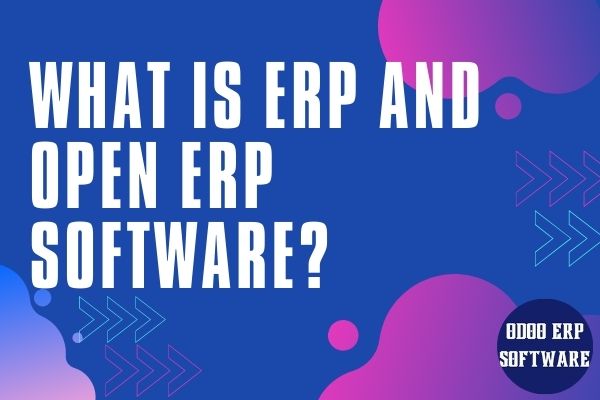ERP stands for Enterprise Resource Planning. The ERP is software that is used by every organization to maintain its numerous segments. It plays a significant role in arranging their resources by integrating different modules of the organization that is required to manage the organization. This is a combination of planning, purchasing, inventory, sales, marketing, finance, human resource, and many more.
It provides an updated view of the vital business process via a familiar database using Database Management System. It traces all the resources of an organization such as financial, raw materials, production department along with the status of the payrolls, business commitments. This also helps in establishing the interaction among the different sections within the organization.
Fundamental Components Of ERP
ERP covers all the aspects of the organizations and is collectively termed as modules.
- Financial Accounting: It helps in managing all the financial processes like general ledger, fixed assets, payables including vouchering, matching and payment, cash management, etc.
- Management Accounting: It helps in managing budgeting or the costing of the product.
- Human Resource: It helps in operating all the operations of the human resource department like greetings of the new employee, required training for the employees, releasing of the employees, diversity management, etc.
- Project Management: It deals with all the activities of the project like project planning, resources required for the project, expenses on any project, work breakdown structure, etc.
- Customer Relationship Management: It helps in establishing the relationship with the customers through the means of sales and purchase, customer contact, call center support.
Requirement of ERP in organization
ERP is a kind of software that enables the organization to incorporate all the basic functionalities required to run the firm like manufacturing, human resources, supply chain into a single system. It offers efficiency, analytics, and visibility in all aspects of the business. Advanced version of ERP helps facilitate the flow of information efficiently. This enables the organization to maintain the performance and decision-making process.
There are some specially designed ERPs for medium-sized or small-sized businesses. We can record all the information in the system that enables the management of the business such as CRM, purchasing, accounting, and supply chain management. With the help of this platform, we can improve our visibility and cash flow while reducing inventory costs.
Benefits of ERP and open ERP
There are the followings benefits of ERP:
Enhanced productivity: The software helps in maintaining time management and cost-cutting of any project which results in more production. It also helps employees to bind up their work on a particular project and have attention to other work, it helps in increasing more production.
Enhanced efficiency: It reduces the manual processes of gathering information, it helps in maintaining all the necessary information regarding the project or the employees that in turn the time-saving.
Cost-saving: The software helps in reducing administrative and operation costs as it provides accurate information based on the real scenario. With such information, we can easily manage the operations effectively and efficiently. Therefore, the cost-saving enhance return on investment, considering continued revenues and selecting the best ERP solution for the organization.
Streamlined Process: As the manufacturing industry grows rapidly, the probability of complexity is increased by the operation department which tends to loss of information and even delays in the production department.
Maintenance: An open ERP helps in the maintenance, updations, and security aspects of the segments within the organization.
Community Development Resource: Open ERP provides the source code to the users for customization. It also provides the variations of the resources to the user and development community in the form of resource modules that enhance the functionality and performance of the operation department.
How ERP and Open ERP works
Generally, the ERP uses a centralized database for the communication or the different operation activities to minimize the manual process and help in enhancing the existing procedures of the department with the use of existing real-time information from all across the business to enhance productivity and profitability.
Suppose, the supply chain department receives an order from the customer that will be automatic get transferred to the distribution department, the department that plays a significant role in completing the order in an effective and timely manner. When a customer receives the package he/she never noticed that the return address on the package was not the same as that of the same vendor. It depends on us which kind of ERP we select that goes through the inventory levels, shipment time, and other factors relating to the distribution department.
Without ERP, it will be difficult for the organization to manage the company since data from the different departments will be easily shared among them.
How does ERP help our businesses?
Conclusion
ERP is the most dependable system for the handling of data, ensuring its reliability, consistency, clarity, and visibility across the organization. It facilitates the organization in maintaining its record and integrated environment for the employees within the organization in an efficient manner. The suitable management of information enables the organization to cost-saving and increase productivity.









